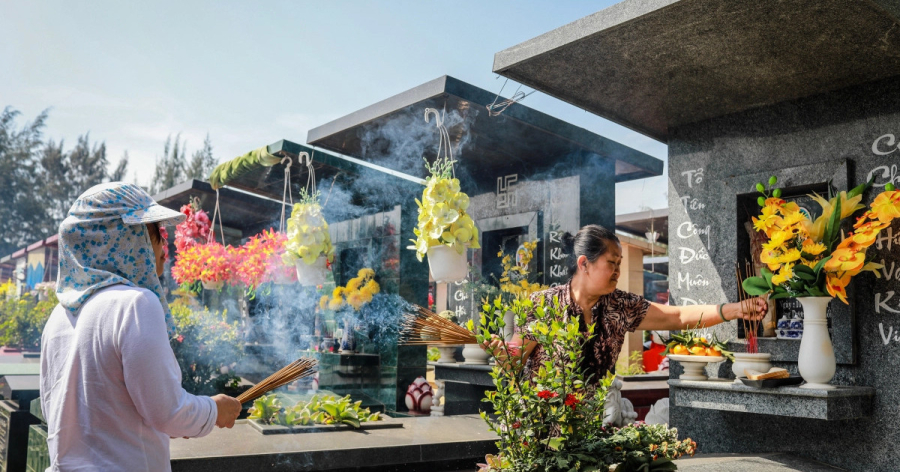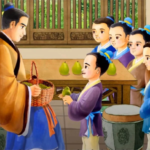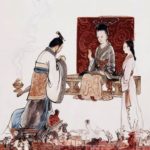Why should we perform end-of-year grave worship?
The Vietnamese have a saying, “Live in the house, die in the grave”. The Vietnamese value grave worship, considering it as the home of their deceased loved ones.
Every time the year comes to an end and Tet, the Lunar New Year, approaches, people clean and tidy their houses to welcome the new year. Similarly, the graves of our deceased loved ones should also be cleaned and maintained. Therefore, families often maintain the tradition of performing end-of-year grave worship.
The significance of end-of-year grave worship is to express gratitude to ancestors and invite the deceased relatives to come back and celebrate Tet. Those who work far away from home often try to return to their hometowns during this time to worship their ancestors’ graves and reunite with their families.

This is also a way for descendants to express gratitude to the deities and local spirits who have protected their ancestors’ graves over time. It is similar to the tradition of worshiping deities and spirits of the land and home before the Lunar New Year.
According to folklore beliefs, end-of-year grave worship is not only about paying respects to our ancestors but also about showing gratitude to the Buddha, local deities, and other revered spirits who have blessed our ancestors with the land. By doing so, our ancestors can easily “return” and protect the health and prosperity of their descendants.
The Vietnamese have a spiritual belief and deep trust in the special connection between Yin and Yang. “The Yin is supernatural, the Yang is natural.” If we take good care of the Yin, our ancestors will protect us, but if we neglect worshiping and taking care of their graves, we may suffer the consequences of not being protected by our ancestors.
Who should perform end-of-year grave worship?
New daughter-in-law of the family
It is unfortunate that the deceased cannot witness their descendants getting married. Ancestors always hope that their descendants will live happily, have a happy marriage, and have many children and grandchildren. When there is a new member in the family, the ancestors in heaven will bless the newlyweds and wish them a long and fruitful life. Therefore, when newlyweds start their own families, they should introduce themselves to the ancestors and participate in grave worship.

Filial and respectful descendants
Since ancient times, people have valued moral virtues, and filial piety is considered the top virtue. In Vietnamese culture, “a hundred good qualities, filial piety comes first”. Therefore, showing filial piety is the most basic requirement.
If someone is filial, they will be loved and respected by the elders, even if they are not successful and cannot bring glory to the family. In the eyes of the elders, health and safety of their children and grandchildren are more important than fame and fortune. If someone knows how to be filial to the elderly, they are a person of good character.
If the descendants are filial, the family will be harmonious and happy, and any conflicts will be quickly resolved. Therefore, ancestors hope that their descendants will be filial so that the family can prosper and thrive. Even though the ancestors have passed away, they still wish for a joyful and harmonious atmosphere created by their descendants.
Successful and academically accomplished individuals
When visiting the graves, ancestors will be very happy to know that their descendants have succeeded, achieved positions, and have a voice in society. Therefore, those who have achieved success should worship their ancestors to bring this good news to them and make them proud of their descendants. At the same time, it expresses gratitude to the ancestors for their protection and support in achieving these accomplishments.
In addition to those who are successful in their careers, academically accomplished individuals should also be mentioned. In ancient times, the only way to progress in society was to pass the imperial examinations. Therefore, there is an old saying that goes: “Excellent education leads to official positions. Ten years of hard work in the imperial examinations bring joy to the whole family, and the local people will be proud of the victory in the imperial examination results.”
Whether in ancient times or modern times, people highly value the act of studying. When worshiping ancestors, the ancestors will be delighted to know that their descendants have achieved academic excellence.






































